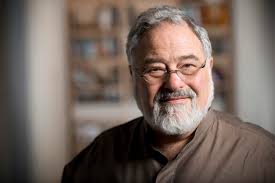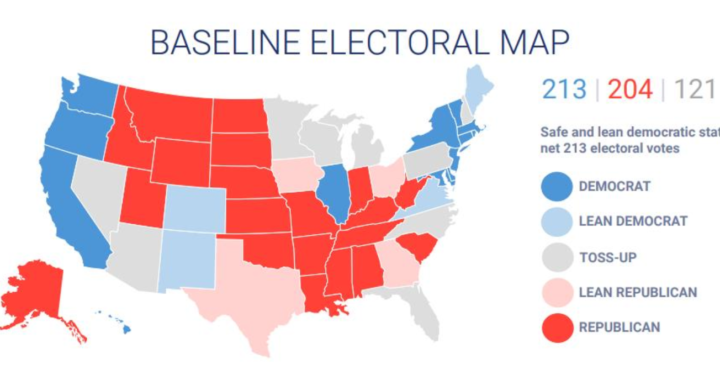Family Models and How They Shape Politics

George Lakoff (below) wrote a groundbreaking book in 1996 called “Moral Politics”. Its thesis is that conservatives and liberals disagree on issues of morality across the board depending on which nuclear family model they prioritize. These two models are the Strict Father model and the Nurturant Parent model. He argues that to understand politics, you have to understand the psychology behind it, how humans engage not in objective data driven analysis, but primarily by identifying with emotional metaphors.

According to Lakoff conservatives prioritize the Strict Father model. The models foundation lies in obeying a male hierarchal authority, for example God in monotheistic religions or the father as head of a household. The hierarchy is “God above Man, Man above Nature, The Disciplined (Strong) above the Undisciplined (Weak), The Rich above the Poor, Employers above Employees, Adults above Children, Western culture above other cultures, Our Country above other countries. The hierarchy extends to: Men above women, Whites above Nonwhites, Christians above nonChristians, Straights above Gays” Morality for conservatives is to obey this hierarchy and their laws and rules which requires internal discipline and strict rewards and punishments. Their world is seen as a fundamentally dangerous and competitive place, which requires a person to be actively focusing on personal survival, self discipline and fighting versus evil.
This worldview for conservatives manifests itself in every arena, their economic viewpoint for example is that the rich deserve what they have earned through willpower and being exceptional in the competitive market. In the past this mindset was used to justify peasants serving the monarchy, after all they were “chosen by God” the ultimate all knowing strict father. The poor to them therefore deserve to be poor because they haven’t personally mastered discipline or done enough in the marketplace. With this hyper focus on the individual conservatives ignore larger economic societal implications like where you were born, how wealthy your family is, the connections they have, the effects of lobbying and greed and overall manipulation of the economy by powerful corporations, all of which an individual has no control over.
A clear example of this difference is how economic conservatives will react to Jordan Belfort played by LeoDiCaprio in the movie Wolf of Wall Street(below). Conservatives will see him as a person to be idolized, a ruthless sometimes brilliant individual who excelled at making money for himself at any cost, while liberals will watch the movie and see it as a cautionary tale of greed and excess.

Beyond the economic realm conservatives all but ignore environmentalism because the Strict Father model and religion has stated that God has given man control over nature and that he is to use the Earth and its resources for personal gain and profit. It’s a very hierarchal view the antithesis being a “liberal hippy” who says we are one with Earth and would live in poverty before ever using or harming it. Most people fall somewhere in between these two mindsets, we need resources, but we also can’t blindly let greed destroy the planet, we need personal discipline and competition but we also need socialization, empathy and compassion. This manifests in every sector of society, for example government social programs are immoral to conservatives because poor people need to help themselves, gays are immoral because they are either a fatherless family or seen as less than capable men to lead a household, and public schools are immoral because non religious ones don’t prioritize Strict Father morality.
This doesn’t mean that conservatives are incapable of being nurturing or having empathy but when push comes to shove, when important decisions need to be made about their lives or politics, the “tough love” individualistic strict father morality always wins out for them.
On the flipside liberals and socialists tend to adhere more to the Nurturant Parent model. This model shares roles between parents in a household and believes that children grow into happy healthy adults naturally if they are cared for, listened to and respected. It doesn’t emphasize personal willpower and punishment like the conservative model instead focusing on leading by example and forming positive social relationships. Two-way mutual communication is key, when the parent does make an authoritative decision questioning is encouraged because children need to learn why their parents do what they do, and vice versa the parent can often learn from the child. The child is encouraged to engage in honest self reflection in order to see their own faults with a sense of openness to discuss anything seen as negative, the opposite being the strict father model which can be an emotionally repressive “suck it up and get over it” mentality. The Nuturant model is more a mutual friendship type relationship rather than the strict father boss-employee type dynamic.

Liberals and Socialists then apply this family model to their politics, in the economy they emphasize labor rights over capital and want wealth distribution because they have empathy for the poor, they see how it’s not just personal decisions and willpower that have given someone wealth, often its exploitation, luck or ignoring socialization and happiness ala a workaholic. There is a reason that CEOs are 20 times the rate of diagnosed narcissists as the general population.
This model applies to every facet of politics for liberals, seeking rehabilitation instead of punishment in the criminal justice system, respecting the earth’s health even if that means we are less wealthy in the short term, governments role to treat everyone fairly, to provide at least a basic standard of living for all people whether they “earned” it or not, an overall openness to all religions and sexual orientations, and making industries fundamental to well being like housing, medical, and education as affordable as possible.
Do you see now how people with totally different family upbringings and styles of relating to other humans will have trouble agreeing on much? This difference between the family models seems to be particularly distinct in the United States. Countries like Japan, France, Denmark have more moderate conservative-strict father mentalities in their cultures and therefore find more consensus on their political decisions with the liberals and socialists in their countries.
There’s some bad news for adherents to the Strict Father mode of parenting, scientific research across the board has concluded that the Nurturant Parent Model is preferable to the Strict Father model because it leads to happier, healthier, more creative and socially involved adults. The Strict Father model falters on a biological level because its repressive, individualistic, hierarchal style triggers the flight or flight response in the brain, leading to more stress and lowering creative and social potential. Furthermore the inevitable policy implications of the Strict Father model like severe income inequality, overcrowded jails, climate change are all universally harmful with little to no silver lining.
Lastly, I would personally like to see child psychology and family styles move to the forefront of political discussion, its often overlooked especially by liberals. Conservatives understand the importance of their strict father morality in winning elections and have leveraged it nationwide to create more union in their party. Liberals would be unwise to ignore the power of emotion. A candidate like Marianne Williamson is laughed at by many but she speaks to a more primal spiritual sense, which is at the heart of politics that lead to progress.



